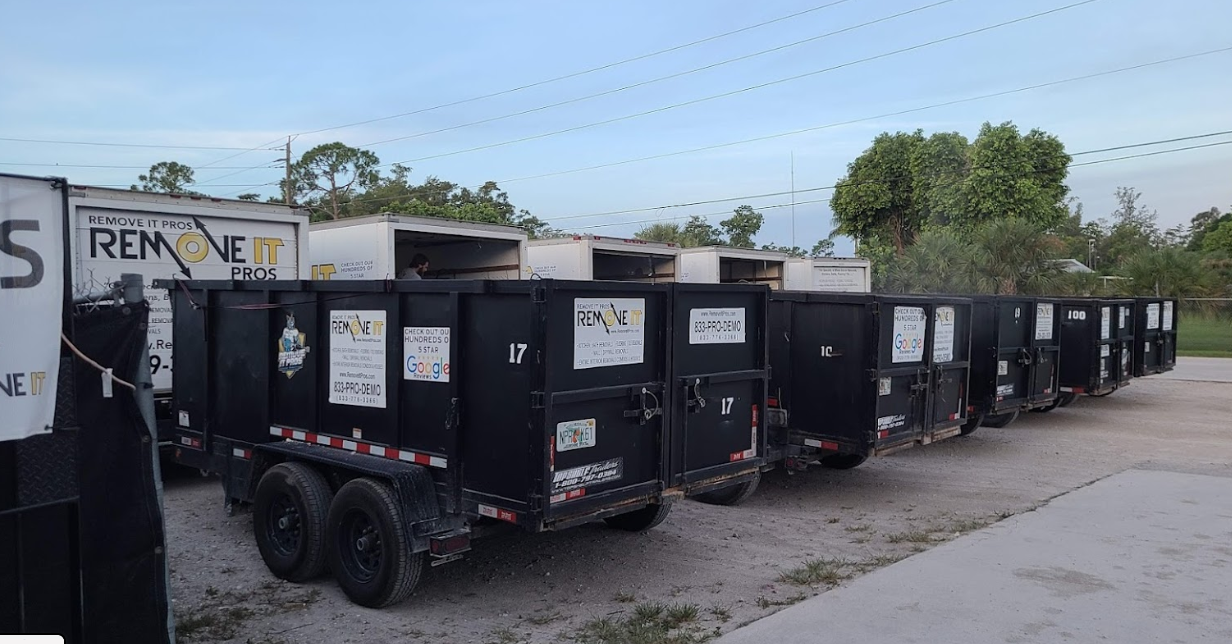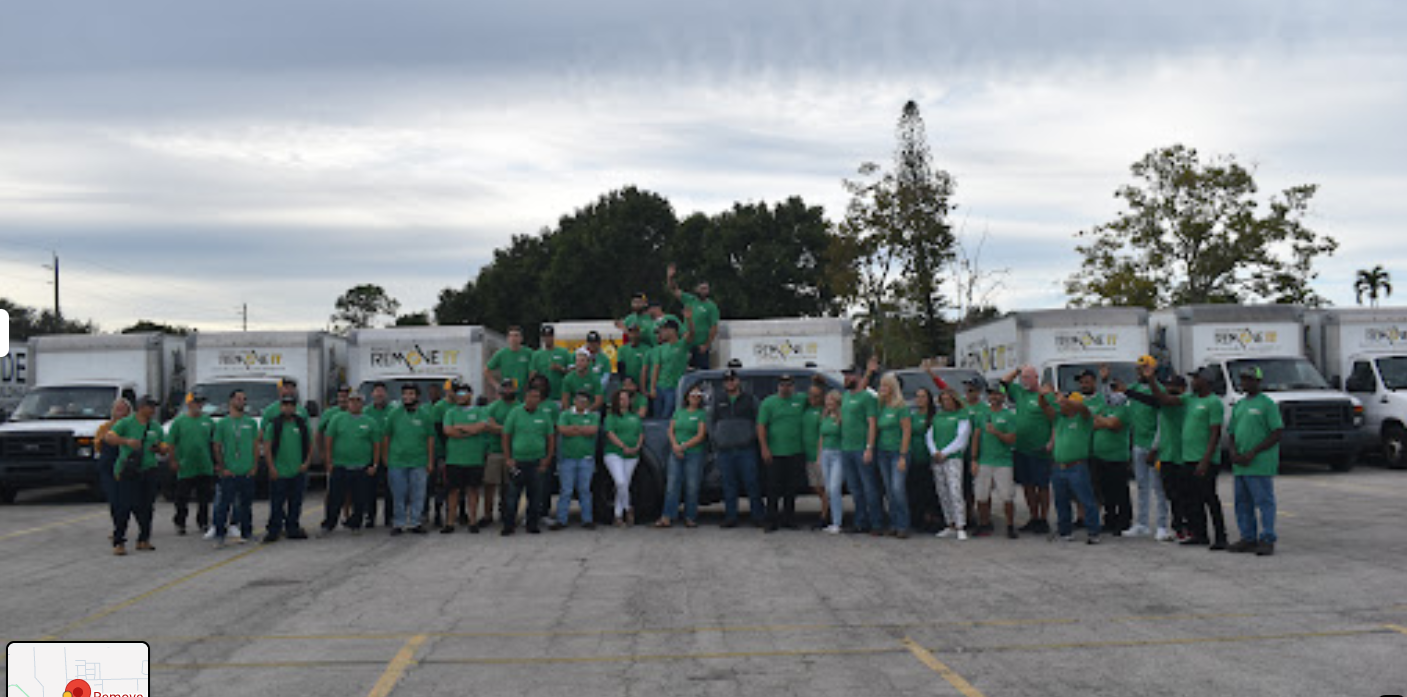Junk Removal in 2024 / 2025
Evolution of Junk Removal Practices
There’s a captivating story behind every revolution, and junk removal is no different. From humble, unsophisticated beginnings to technologically advanced methods, the journey of waste management is intriguing. Let’s examine the evolution of junk removal practices, see where they stand today, and speculate about the future.
Historical Perspective
In times gone by, people tackled their waste in basic ways.
- Burying: This was one of the earliest forms of waste management, involving digging pits and burying trash. While this kept waste out of sight, it contributed to soil pollution.
- Burning: This method was prevalent but came with its own set of problems, mainly air pollution and risk of uncontrolled fires.
- Dumping: Waste was simply thrown away in designated locations, creating numerous health hazards and impacting the quality of life.
These primitive methods were rooted in necessity and practicality. However, they barely scratched the surface when it came to eco-friendly practices and long-term sustainability.
Current State
Fast-forward to the 21st century, and junk removal has undergone a transformative change.
- Recycling: Recycling, a practice that involves processing waste into new products, is spearheading the revolution. It helps conserve resources, save energy, and reduce the need for waste disposal. We have 17 years of firsthand knowledge.
- Composting: Turning food waste and yard scraps into nutrient-rich soil is a viable method of waste management that caters to the environment.
- Hazardous waste disposal: Strict regulations now guide the disposal of harmful waste, ensuring a safer environment.
The emphasis has shifted from mere disposal to sustainable practices that value resource management and environmental preservation.
Areas we serve: Both Lee and Collier Counties. Marco Island, Naples, Sanibel, Fort Myers Beach, Estero, Bonita Springs, Fort Myers, Cape Coral
Predicted Trends
It’s clear that the future of waste management lies in innovation and technology.
- Waste-to-energy plants: These facilities convert garbage into usable forms of power, like electricity or heat.
- Robotic sorting: Implementation of AI for sorting waste into categories improves the efficiency and effectiveness of recycling processes.
- Smart bins: Futuristic waste containers notify officials when they are full, improving collection frequency and schedules.
The common thread running through these anticipated trends is an unswerving dedication to preserving the environment while managing waste efficiently.
For those fascinated by the ever-changing landscape of waste management practices, following its evolution brings home a humbling realization. It showcases our capacity to learn, adapt, and improve – not just for the menial task of trash disposal, but for the greater cause of environmental preservation as well. The evolving face of junk removal is a testament to our commitment towards making our planet a better place to live in.
The Importance of Responsible Disposal
Our environment doesn’t have a voice, but it speaks loudly. A harmony that, unfortunately, faces potential discord due to irresponsible waste disposal. This is why understanding and advocating for responsible disposal has never been more imperative.
Remarkably, timely and proper waste disposal is not just about saving the environment—it’s about preserving health!
Human safety and well-being are heavily linked to the environment’s condition. Waste breeds bacteria and attracts pests, while improperly disposed hazardous waste causes toxic spills that are harmful to both humans and animals.
Every year, thousands of individuals are affected by diseases like cholera, dengue, and typhoid, all of which can emanate from improperly disposed waste. By practicing responsible disposal, we can robustly safeguard public health and improve living conditions for all.

Legal Regulations
If health and environmental implications aren’t motivation enough, legal consequences should be. Disposal laws aim to maintain a secure and safe living environment, and failure to comply could lead to fines and penalties—a costly oversight.
Understanding waste disposal laws is vital—certain types of waste, for instance, are classified as hazardous and warrant specific methods for safe disposal. Recognition of these regulations empowers both businesses and individuals to implement more effective waste management strategies.
In the symphony of life, waste management might seem like a trivial note—but it’s pivotal for achieving harmony. It is a role we must perform with commitment and devotion—to live responsibly, for a healthier, safer, and cleaner tomorrow.
Strategies for More Responsible Disposal In 2024/2025
Recycling
Recycling is the first strategy for waste disposal that instantly comes to mind. It’s a straightforward yet powerfully effective way to transform what we consider ‘waste’ into valuable resources. However, to recycle proficiently, we need to refine our understanding of what can be recycled and how.
- Plastics, paper, and glass: These everyday items are completely recyclable. Remember to rinse containers to eliminate food residue before tossing them into your recycling bin.
- E-waste: With technology evolving at lightning speed, electronic waste has surged. Locate electronic recycling companies where you can drop off outmoded devices.
- Batteries and lights: Special facilities exist to recycle used batteries and light bulbs, preventing harmful chemicals from leaking into our environment.
- Scrap Metal: Taking the time to separate and process scrap metal, its not oly good for the planet it pays for itself in a small profit.

Green Donation & Repurposing
Todays Junk Removal “One person’s trash is another person’s treasure,” Donation and resale of used goods are perfect ways to declutter your home and promote sustainability.
- Clothing and Accessories: Before disposing of outgrown or less-loved clothing, consider donating to local charities or resale platforms that offer used clothing.
- Furniture: Many non-profit organizations and resale stores would gladly accept furniture in decent condition. We have a resale store; ReUseItPros here in Bonita Springs.
- Books and Toys: Libraries, schools, and children’s shelters always welcome book and toy donations.
Role of Technology in Responsible Junk Removal
In the age of rapidly evolving technologies, sectors across the board are leveraging cutting-edge tools and systems to enhance business operations and customer experiences. Among these sectors, junk removal – an often overlooked yet critical part of our everyday lives – is no exception. These advancements pave the way for responsible waste management, facilitating greater sustainability, and have deep implications for both the environment and public health. Let’s delve into some innovative technologies pivotal to responsible junk removal.
Challenges & Solutions for More Responsible Disposal
The 21st century has brought a wave of consciousness about our planet’s delicate ecological balance. Changes in climate, dwindling natural resources, and waste accumulation have all brought the critical issue of responsible waste disposal to the forefront of global consciousness. Despite increasing awareness, numerous challenges still hinder our progress towards more sustainable practices. So how do we mitigate these challenges, and what solutions are available for more responsible disposal?

Conclusion
As we cruise towards 2025, it has become clear that the key to responsible junk disposal lies at the intersection of technology, policy, education, and community activity. While we are faced with significant challenges, innovative solutions and dedicated efforts can turn these into opportunities for growth and betterment. In this journey, every decision we make – be it the junk removal service we choose or the care we take in separating recyclables from our waste – can contribute towards a more sustainable future.
Companies like Remove It Pros Inc. are playing a critical role by providing services that align with this responsible disposal ethos. They not only ensure your junk is disposed of correctly, but also actively engage in recycling, donating, and repurposing as much as possible.
Now armed with knowledge and insight, let’s step forward together into 2025, shouldering the responsibility and embracing the possibilities of more responsible junk disposal. After all, it is not just about cleaning up our spaces, it’s about taking care of our planet.
Frequently Asked Questions
- What is junk removal?Junk removal is the process of safely and responsibly disposing of unwanted items or materials. It involves the collection, hauling, and proper disposal or recycling of various types of waste.
- Why is responsible disposal important?Responsible disposal is important to minimize environmental impact, reduce landfill usage, and promote sustainability. Proper disposal ensures that hazardous materials are handled safely and that recyclable items are recycled to conserve resources.
- What are the benefits of hiring a professional junk removal service?Hiring a professional junk removal service saves you time and effort, ensures proper disposal and recycling, prevents injury and potential damage to your property, and helps you declutter and maintain a clean living or working space.
- Can I recycle or donate items during junk removal? Yes, many professional junk removal services offer recycling and donation options. They will sort out items that can be recycled or donated, ensuring they are handled appropriately and given a second life.
- How can junk removal contribute to a more sustainable future?Junk removal services play a crucial role in diverting waste from landfills by recycling or donating items whenever possible. This reduces the overall environmental impact, conserves resources, and encourages responsible waste management practices.
